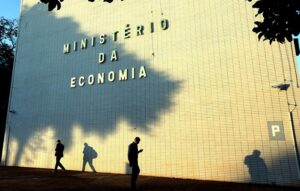The SPE (Secretary of Economic Policy) of the Ministry of Economy reassessed the expectation for the growth of the Brazilian economy in 2020. The update is of the projection is of a growth of 2.1% in the Gross Domestic Product (GDP). While the previous one was 2.4%.
Waldery Rodrigues, the special secretary for Finance at the Ministry of Economy, said that the forecast for the Gross Domestic Product would remain above 2%.
He also said that two other things would enter into this equation. The downward revision of economic growth projections and the drop in international oil prices. And that this will result in a contingency action by the government (read: blockade), of part of the budget.

With the economy still growing, however, below expectations, the government collects a smaller amount. Which implies the need to limit discretionary spending (i.e., non-mandatory) to meet the primary deficit fiscal target of R$ 124.1 billion in 2020.
Petroleum
“There are uncertainties about the impact that the drop in oil and the slowdown in global growth may have on the Brazilian economy. It is important to point out that the growth scenario for this year has become more challenging. We are closely monitoring developments from Covid-19 and the recent drop in oil prices. And we reaffirm that the best response to the new scenario is to persevere with fiscal and structural reforms”, says the bulletin.
Another aspect that should influence the drop in revenues is the shock to oil prices on the international market. The budget law was formulated based on an average price expectation of US$ 58.96 per barrel of Brent oil, but the commodity ended yesterday's trading session at US$ 37.22.
It is worth remembering that the government must also withdraw from the account the expected R$ 16.2 billion with the privatization of Eletrobras, whose project did not advance in Congress.
And it also revised its projection for the National Consumer Price Index (INPC) in 2020, from 3.73% to 3.28%. The indicator serves as a reference for the correction of the minimum wage. Which in turn influences the value of two thirds of the benefits paid by the INSS, in addition to expenses with salary bonuses and social assistance.
SPE's projections also point to an increase of 3.12% in the Extended National Consumer Price Index (IPCA). Which is the official inflation indicator, given an advance expectation of 3.62%.
see more about the impact of the current situation on the local economy.


